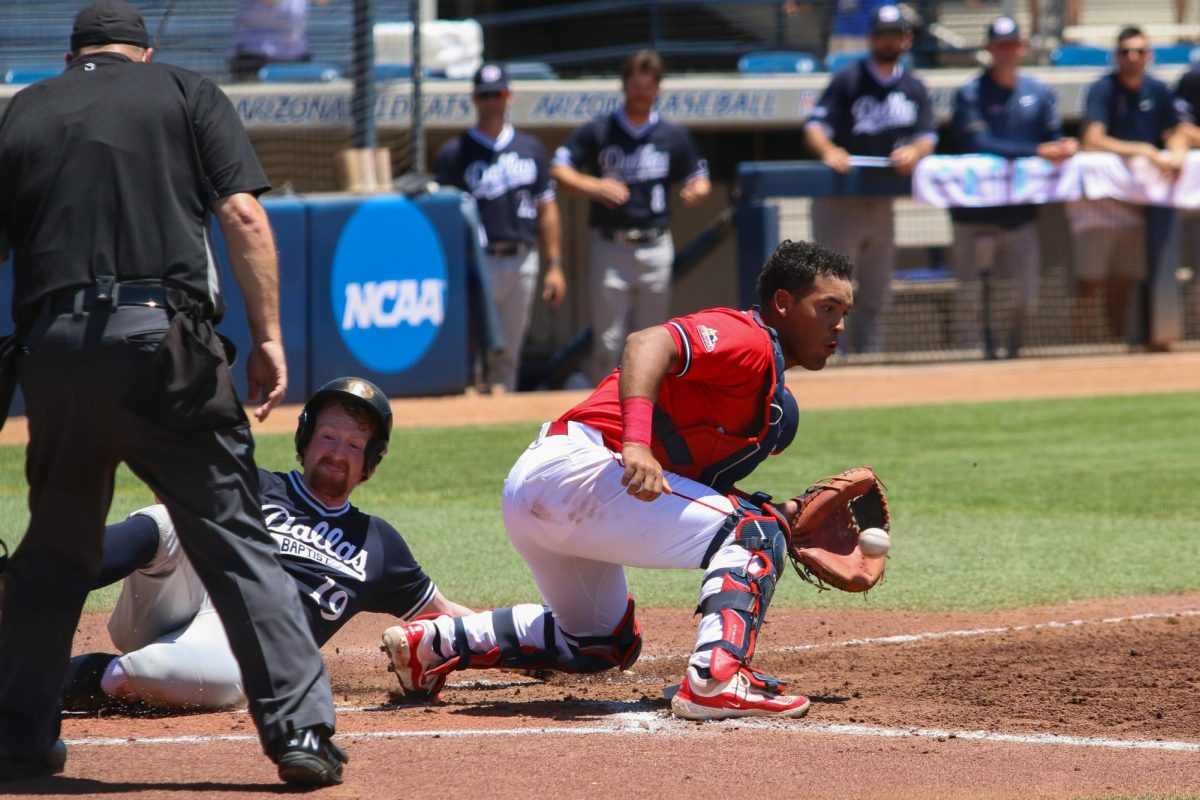College may present an opportunity for freedom for some students, but those who get too carried away may face the law in the form of UAPD.
The University of Arizona Police Department is a full-service police department on campus that has all the powers of a regular police department, ranging from investigations to arrests.
UAPD patrols the UA campus seven days a week, 24 hours a day. At any given time, there are three to eight officers patrolling campus, depending on the time of day and the time of year.
UAPD patrols between East Eighth Street, East Lester Street, North Euclid Avenue and North Campbell Avenue, maintaining a concurrent patrol boundary with the Tucson Police Department, meaning that in some areas, either UAPD or TPD could respond to a call.
UAPD is also responsible for responding to 911 calls for service, medical emergencies or public assistance, as well as supporting large public events and doing investigative follow up.
As with a regular police station, UAPD officers can take arrests to Pima County Jail, depending on
the crime.
In addition to uniformed officers, there are also Community Service Officers who do campus patrol by foot or bicycle. CSOs are UA students employed by UAPD who are trained and then deployed out into filed patrol.
“”They are essentially our extra set of eyes and ears out there,”” said UAPD Public Information Officer Juan Alvarez. “”If they see anything suspicious then they can call us. They can also interact with the community constantly and answer questions – be available for assistance in that way.””
Also on campus are Residence Hall and Greek Life liaisons. The liaison officers are assigned to specific residence halls, sororities and fraternities to work with the students, hall staff and support staff on any issues that may be common to the entire residence. The liaisons are available to answer questions and can also provide presentations on safety and crime prevention.
“”We encourage officers to visit their dorms, interact with the people in their dorms on a non-enforcement type situation just to further establish that relationship of a person who you can turn to when something happens – or if you just have a general question, then you know who you can talk to,”” Alvarez said.
At the UA, some of the most common crimes on campus are crimes against property, such as theft, burglary and criminal damage. Drug and liquor violations are the second most common crime. In 2007, there were 290 liquor violations and 299 drug violations reported by UAPD.
Some liquor and drug violations may be diverted to the Dean of Students Office instead of UAPD in recognition that these are issues that usually call for treatment and not just punishment. Officers have the discretion as to whether a student will be placed under arrest or
diverted.
When a student is in the diversion program, they must follow the terms placed on them by the Dean of Students Office, which works with the Pima County Attorney’s Office. Once a student has completed the diversion program, their violation will not go on their criminal record, only on their school record. If a student does not complete the diversion program, they will be referred back to UAPD.
“”The university is uniquely suited to handle some of the problems and issues that students are facing,”” Alvarez said. “”The court recognizes that we are better suited in some situations to help out the student, and so it becomes a better way we can support our student
population.””








